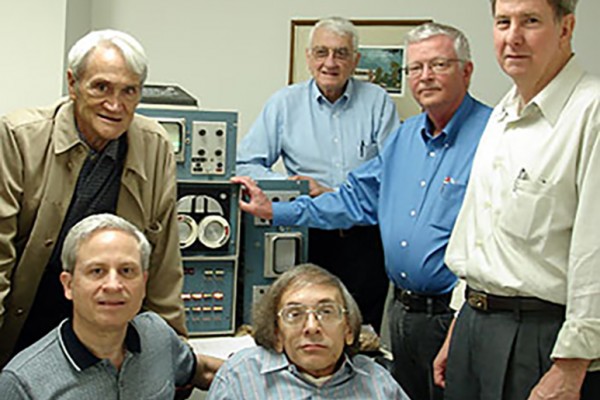How research can impact business: Olin School launces contest
The Olin Business School is launching a competition to honor an Olin faculty member whose research has the greatest potential to advance business and management practice. The “Olin Award: Recognizing Research That Transforms Business” includes a $10,000 honorarium. Faculty research submissions were solicited in August, and the submissions will be reviewed by 11 senior corporate […]
Auslander named Barbara A. Bailey Professor
Wendy Auslander, Ph.D., has been named the Barbara A. Bailey Professor at the George Warren Brown School of Social Work. Auslander is the third holder of this professorship, succeeding Arlene R. Stiffman, Ph.D., and Aaron Rosen, Ph.D. “Thanks to the generosity of our distinguished alumna, the late Barbara Bailey, Wendy Auslander can continue carrying on […]
Financial chief
Photo by David KilperBarbara Feiner keeps WUSTL’s fiscal matters in order
Schlanger testifies before House subcommittee
Margo Schlanger, J.D., professor of law, testified before the House Judiciary Committee’s Subcommittee on Crime, Terrorism, and Homeland Security Nov. 9. She testified during a hearing titled “Review of the Prison Litigation Reform Act: A Decade of Reform or an Increase in Prison and Abuses?” In her testimony, Schlanger discussed how the Prison Litigation Reform […]
Annual Faculty/Staff Appreciation Event at Campus Store Nov. 28
The Campus Store will hold its 10th annual Faculty/Staff Appreciation Event Nov. 28 and will offer a 30 percent discount to WUSTL faculty and staff members from 3-8 p.m.
Preserving computer history
This team of researchers restored the Laboratory Instrument Computer (LINC) — recognized by the Institute of Electrical and Electronics Engineers Computer Society as the world’s first interactive personal computer — for display at the 10th Vintage Computer Festival Nov. 3-4 in Mountain View, Calif.
WUSTL researchers to install seismographs in Antarctica
A team of WUSTL seismologists, led by Douglas A. Wiens, Ph.D., professor of earth and planetary Sciences in Arts & Sciences, will soon go to remote regions of Antarctica to place seismographs and learn about the earth beneath the ice. The location of their field camp, called AGAP-South, never before has been visited by humans.
2007 Olin Cup finalists offer wide range of product and service ideas
The finalists for the 2007 Olin Cup Competition include six teams, four of which are student-owned or student-supported ventures. The annual business formation contest is organized by the Skandalaris Center for Entrepreneurial Studies at WUSTL. Ultimately, two teams will win up to $70,000 in seed investment capital and a student-owned or – supported team will win a $5,000 cash prize.
November 2007 Radio Service
Listed below are this month’s featured news stories.
• Age-related macular degeneration (week of Nov. 7)
• An eye on curing diabetes (week of Nov. 14)
• Obesity and heart disease in kids (week of Nov. 21)
• Depression and diabetes (week of Nov. 28)
Poxvirus’s ability to hide from the immune system may aid vaccine design
The cowpox virus, a much milder cousin of the deadly smallpox virus, can keep infected host cells from warning the immune system that they have been compromised, researchers at the School of Medicine have found. The scientists also showed that more virulent poxviruses, such as the strains of monkeypox prevalent in Central Africa, likely have the same ability.
View More Stories

